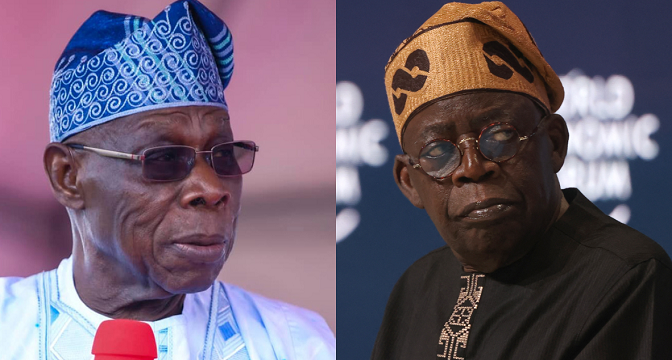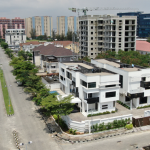In a striking exchange that has captured the nation’s attention, the presidency has launched a scathing rebuttal against former President Olusegun Obasanjo’s recent criticism of the Bola Tinubu administration. This verbal spat has ignited a fierce debate about leadership, legacy, and the direction of Nigeria’s political future.
Former President Obasanjo, known for his outspoken nature, fired the first shot with a blistering critique of President Tinubu’s governance. While the specific details of Obasanjo’s criticism remain unclear, it is evident that his words struck a nerve within the current administration.
In response, the presidency didn’t hold back. They asserted that Obasanjo was “not an ideal leader to emulate,” a statement that has sent shockwaves through Nigeria’s political landscape. But they didn’t stop there. In a move that has raised eyebrows across the nation, the presidency called on Obasanjo to engage in some serious introspection, urging him to “reflect on missed opportunities during his time in leadership.”
This pointed reference to Obasanjo’s own tenure has sparked intense discussions about the nature of political legacy in Nigeria. It begs the question: How do we measure the success of a presidency, and who has the right to critique current leadership?
The exchange between these political heavyweights has not gone unnoticed by the Nigerian public. Social media platforms have been abuzz with commentary, memes, and heated debates. Political analysts have been working overtime, dissecting every word and implication of this high-stakes verbal joust.
Political commentator Dr. Aisha Yusuf noted, “This exchange highlights the ongoing tension between the old and new guard in Nigerian politics. It’s more than just a war of words; it’s a battle for the narrative of Nigeria’s political history.”
Recent public opinion polls suggest a nation split down the middle, with 48% supporting Obasanjo’s right to critique the current administration, while 52% believe former leaders should refrain from public criticism of their successors.
This political drama unfolds against a backdrop of significant challenges facing Nigeria. From economic struggles to security concerns, the nation grapples with issues that transcend political squabbles.
The presidency’s response, while forceful, raises questions about the current administration’s approach to criticism. Is this a sign of a government willing to stand its ground, or does it betray a sensitivity to critique that could hinder open dialogue?
Conversely, Obasanjo’s criticism, coming from a former president, carries weight. But it also invites scrutiny of his own legacy. The presidency’s call for reflection on “missed opportunities” during Obasanjo’s tenure is a reminder that no leadership is without its flaws.






